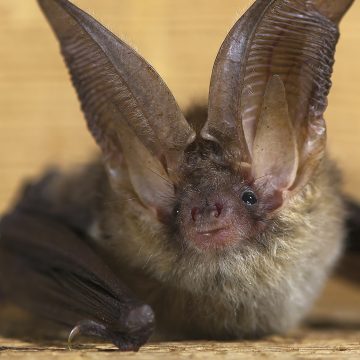Executive Summary
The Earned Recognition (ER) Partnership Project involves Natural England (NE), the Bat Conservation Trust and the Chartered Institute for Ecology and Environmental Management (CIEEM). The aims of the project are to design a scheme to streamline the mitigation licensing process for bats in England, raise and maintain professional standards and improve outcomes for bats.
A detailed consultation was launched on 17th November 2020 to gather views on the proposed ER scheme from ecologists involved in mitigation licensing, to inform a pilot in 2021 and to identify those interested in taking part in the pilot. A webinar was hosted by the partners on 19th November to introduce the scheme and take questions; the consultation closed on 5th January 2021. This report provides the consultation results.
In total, 252 people responded to the consultation, around a third of the number of mitigation licence applicants in NE records from the last three years. The majority of respondents were ecological consultants and there was good representation of different geographical areas in which respondents work, sizes of organisation and ecology team, and types of development worked on. Most respondents work on both structures and trees (rather than just one or the other). Most respondents were members of CIEEM, although other professional bodies were represented.
The majority of respondents hold a minimum of a Level 2 survey licence from NE, which is a pre-requisite for mitigation licensing. Respondents included those who only hold survey licences and those who also hold mitigation licences and/or a Bat Mitigation Class Licence.
The consultation showed an overall positive response to the ER scheme, with the majority of respondents predicting good outcomes for mitigation licence holders, developers and NE. The respondents were less aligned regarding whether or not they thought the scheme would be better for bats and if it would be misused by mitigation licence holders or developers.
There was a positive reaction to the ER Accreditation Levels, the Competency Profiles and the Sample Competency. The majority of respondents favoured one scheme to cover both structures and trees and the inclusion of activity surveys in the Competency Framework. However, fewer respondents favoured the inclusion of sonogram analysis.
When asked if other types of assessment could be used and if the sifting process would pick up the right cases for manual assessment, just over half of respondents said they did not know. Bearing in mind limited information was provided on both of these aspects of the scheme this is perhaps not a surprising result. Finally, the majority of respondents were keen to take part in the pilot.
As a result of the consultation, some of the documents and processes have been updated in advance of the ER pilot. Numerous other valuable comments were received which will be analysed and considered further during the pilot. Comments were also received which were in the form of questions, some of which highlighted some common areas of concern. Many of these are already addressed in the consultation webinar Q & A document (published on the BCT and CIEEM websites during the consultation period), but new questions arising will be added and published in due course.
We would like to thank those who responded to the consultation for their time and look forward to working with some on the pilot in 2021.
